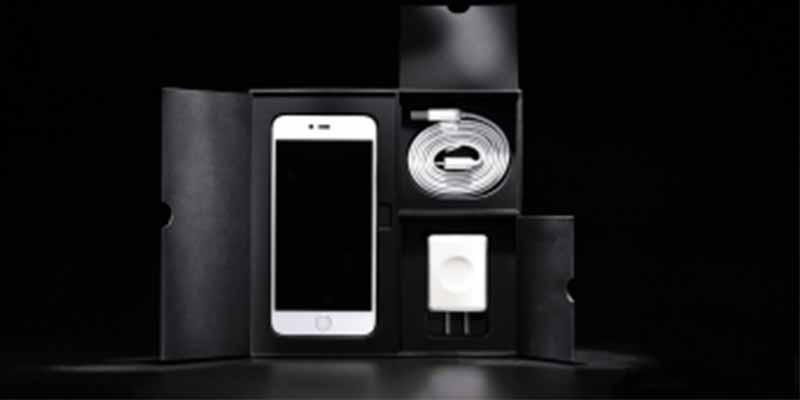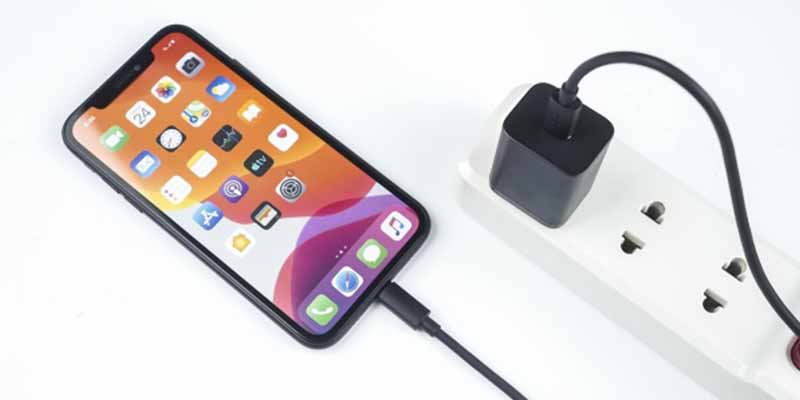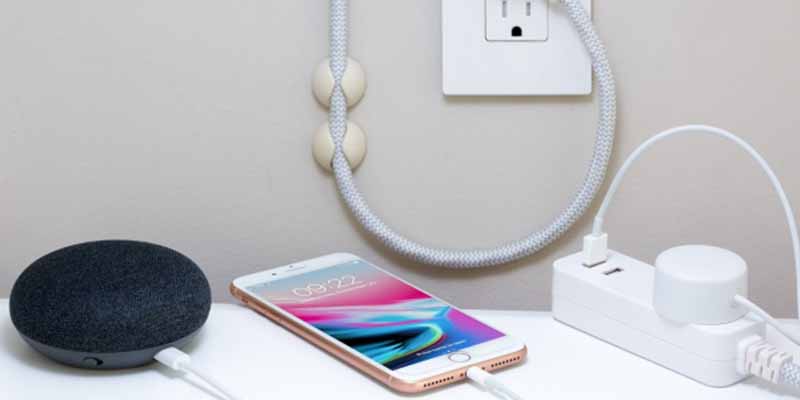Mobile phones and phone accessories are an essential part of our lives in today’s digital age. We rely on them for communication, entertainment, information, and productivity. With the increasing dependency on smartphones, the topic of phone chargers has gained significance.
While the market is flooded with various charger options, the question arises: do mobile phones have to be officially supplied with phone chargers? This comprehensive exploration will explore this question. Whether you own an iPhone, Samsung, or any other brand, this article will provide valuable insights into phone charging.
What are the benefits of using the official supporting charger?
Officially supplied phone chargers, such as Apple’s Lightning cables or Samsung’s USB-C chargers, offer several benefits. Firstly, the manufacturer designed and tested them to ensure compatibility and safety with their specific devices. This means that when you use an Apple or Samsung phone charger, you are less likely to encounter issues like overheating, short-circuiting, or battery damage.
Secondly, official phone chargers often come with warranties, guaranteeing quality and performance. In the event of a malfunction or defect, you can typically get a replacement or repair at no extra cost. This level of assurance is not guaranteed with unofficial chargers.
Moreover, thanks to optimized power delivery, portable phone chargers provide faster and more efficient charging. They are designed to work seamlessly with the phone’s hardware and software, allowing quicker charging times and preserving battery life in the long run.
Finally, an official charger may also prevent compatibility issues with software updates. Some unofficial phone chargers may not be recognized by the phone’s operating system, leading to error messages or reduced charging speeds.
Do I Have to Use an Official Charger to Charge My Phone?
The necessity of using an official phone charger largely depends on the specific smartphone manufacturer and model. While some brands may encourage or require official chargers, others are more flexible.
Apple, for instance, has been known to push for the use of official chargers, and in some cases, they have implemented software features that monitor and limit the charging speed when unofficial phone chargers are used. This approach ensures user safety and product reliability using Apple phone chargers. However, it has also sparked debates about consumer choice and the environmental impact of electronic waste generated by proprietary connectors.
On the other hand, Android-based manufacturers like Samsung, Google, and OnePlus tend to be more lenient regarding charger choices. They often use widely adopted USB-C connectors and adhere to industry standards, allowing users to charge their devices with various third-party chargers.
So, do you have to use an official charger? It is not an absolute requirement in most cases, but it is recommended for optimal performance and safety, especially for iPhones. However, high-quality third-party chargers that adhere to industry standards can be a suitable alternative for many Android users. The key is to choose a charger for your phone wisely and prioritize safety and compatibility.

Pros and Cons of Using an Unofficial Charger:
Unofficial phone chargers, often called third-party chargers, offer advantages and disadvantages to smartphone users.
Pros
- Cost-Effective: Third-party chargers are generally more affordable than official phone chargers, making them an attractive option for budget-conscious consumers.
- Variety: The market for unofficial chargers is vast. Users can choose from various design, length, and feature options. This variety allows users to choose phone chargers that suit their preferences and needs.
- Compatibility: Many third-party chargers are designed to be versatile, working with multiple devices from various manufacturers. This can be particularly convenient for households with different types of smartphones.
Cons
- Safety Concerns: The primary drawback of using unofficial phone chargers is the potential risk to your device and personal safety. Cheaply made or counterfeit chargers may need proper safety features, leading to overheating, short-circuiting, or even electrical fires.
- Inferior Build Quality: Unofficial phone chargers may not be built to the same quality standards as official ones. This can result in a shorter lifespan for the charger and may lead to more frequent replacements.
- Reduced Performance: While some third-party chargers may claim fast-charging capabilities, they often fall short of official chargers’ charging speed and efficiency. In some cases, they may not support the latest fast-charging technologies.
- Compatibility Issues: Some third-party phone chargers may not work well with certain devices, leading to slower charging speeds, compatibility errors, or damage.
What to Pay Attention to When Buying a Charger?
When purchasing a charger for your mobile phone, whether it’s an official charger or a third-party option, there are several essential factors to consider:
Compatibility
Ensure the charger is compatible with your phone model. Check for compatibility information provided by the manufacturer or retailer.
Certifications
Look for phone chargers with relevant certifications, such as UL (Underwriters Laboratories) or CE (Conformité Européenne), indicating compliance with safety and quality standards.
Wattage and Charging Speed
Consider the charger’s wattage output and compatibility with your phone’s fast charging capabilities. Higher-wattage chargers can charge your device more quickly, but they must be compatible with your phone’s charging circuitry.
Cable Quality
Pay attention to the quality of the charging cable. Cables with reinforced connectors and durable materials are less likely to fray or break over time.
Brand Reputation
Choose phone chargers from reputable brands that produce reliable and safe charging accessories.
User Reviews
Read user reviews and feedback thoroughly. Reviews for phone chargers will let you get insights into the real-world performance and reliability of the charger you’re considering.
Warranty
Check if the phone charger has a warranty or guarantee. This can provide peace of mind in case of defects or malfunctions.
Price
While price is a consideration, it shouldn’t be the determining factor. Avoid extremely cheap phone chargers, which may sacrifice safety and quality for cost savings.
Connector Type
Ensure that the charger for your phone has the correct connector type (e.g., USB-C, Lightning, micro-USB) for your device.
Environmental Impact
Consider the environmental impact of your phone charger choice. Proprietary chargers, while sometimes necessary, can contribute to electronic waste. Choosing standardized connectors may reduce waste and promote sustainability.
These factors will help you select a charger that meets your needs while ensuring safety and reliability.

What are the Risks of Counterfeit Phone Chargers?
Counterfeit phone chargers pose a significant risk to smartphone users. These fake chargers often imitate the appearance of genuine ones but lack the quality, safety features, and performance standards of legitimate products. They are typically offered at lower prices, enticing budget-conscious consumers.
However, counterfeit chargers for phones can lead to various issues, including overheating, electrical hazards, damage to your phone’s battery or even the risk of fire. It’s crucial to be cautious when purchasing chargers from unauthorized sellers or unfamiliar sources.
Stick to reputable retailers and manufacturers in these situations to avoid the potential dangers associated with counterfeit chargers.
Standards for Chargers that Need Attention
The world of phone chargers is governed by various standards and specifications that ensure compatibility and safety. Here are some of the key standards that deserve attention:
USB Standards
Universal Serial Bus (USB) standards, such as USB-A, USB-C, and USB Power Delivery (PD), are crucial in phone charger compatibility. USB-C, in particular, has become a widely adopted standard for its versatility and fast-charging capabilities.
Qi Wireless Charging
Qi wireless charging is a standard for wireless charging technology used in many smartphones. It defines the requirements for wireless phone chargers and devices to ensure interoperability.
Fast Charging Standards
Manufacturers like Qualcomm (Quick Charge), MediaTek (Pump Express), and Samsung (Adaptive Fast Charging) have introduced their proprietary fast-charging standards. These standards govern how devices communicate with chargers to enable faster charging speeds.
Safety Standards
Various safety standards, including UL (Underwriters Laboratories) and CE (Conformité Européenne), set safety requirements for chargers to protect against electrical hazards.
Environmental Regulations
Environmental regulations like RoHS (Restriction of Hazardous Substances) restrict using certain hazardous materials in charger components. Phone chargers with these standards promote environmental sustainability.
International Standards
International standards organizations, like the International Electrotechnical Commission (IEC), are important for phone chargers. They develop standards for charger connectors, voltage levels, and safety features to ensure global compatibility.
Summary
In the realm of phone chargers, choosing between official and unofficial options is pivotal for smartphone users. Official chargers offer safety, warranty protection, and optimized performance, though they might not always be obligatory. Brands like Apple promote official chargers, while Android-based manufacturers offer more flexibility.
Unofficial phone chargers present cost-effective alternatives with extensive choices but carry safety risks and potential performance dips. Prioritizing factors like compatibility, certifications, charging speed, cable quality, brand reputation, user reviews, warranty, and environmental impact is vital when purchasing a charger. Familiarity with charger compatibility and safety standards is essential for informed choices.
Ultimately, opting for an official or unofficial phone charger hinge on personal preferences, financial constraints, and your smartphone’s unique demands. Striking the right balance ensures a charger that suits your needs while upholding safety and reliability.




